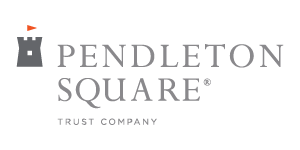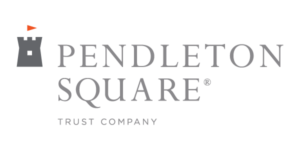In 2022, we saw market volatility, geopolitical unrest and widespread uncertainty. As families emerged from the pandemic, we encouraged them to revisit and update long-term plans. As we ring in the new year, it is the opportune time to resolve to review and update your estate plan this year.
Reflections on 2022.
Over the past year, we observed increased activity in purposeful estate planning. Chief structures implemented were traditional revocable trusts, private family foundations, charitable trusts, and spousal lifetime access trusts (SLATs).
Revocable Trusts
Over the past year, many individuals established revocable trusts or joint revocable trusts with a spouse as they focused on uncertainty and future transitions. In a typical revocable trust, the grantor retitles assets in the name of the trust, serves as trustee during life, and directs the disposition of assets upon death. In a revocable trust, a successor trustee can step in seamlessly in the event of incapacitation, emergency, or death. Since the grantor may amend or revoke a revocable trust, it is a savvy estate planning technique for those individuals interested in maintaining lifetime control while simultaneously planning for emergency situations or incapacitation in the future.
Private Family Foundations and Charitable Trusts
On the philanthropic front, we are administering several new private family foundations and charitable trusts established in 2022. Private family foundations are a smart technique for those families looking to create a charitable legacy. Guided by a philanthropic mission, the foundation makes grants to charitable organizations. Charitable trusts likewise support a family’s philanthropic mission but can be structured with additional structure benefits. To illustrate, a trust may name charities as current beneficiaries and individuals as remainder beneficiaries (a charitable lead trust) or vice versa (a charitable remainder trust).
Spousal Lifetime Access Trusts (SLATs)
Our team also saw many happily married couples take advantage of high exemption amounts and establish Spousal Lifetime Access Trusts (SLATs). A SLAT is an irrevocable grantor trust created by one spouse for the benefit of the other spouse. Typically, the grantor spouse uses his or her lifetime gift tax exemption to make a gift into the SLAT. This technique allows the grantor spouse to remove the trust assets from his or her taxable estate, while permitting the beneficiary spouse to enjoy the trust assets.
Resolutions for 2023.
Do not procrastinate! We encourage you to revisit or update your estate plan. An estate plan review may be overwhelming without a procedure or guidance to follow. Please refer to our Estate Plan Checklist as a resource:
- Review your estate planning documents and any relevant tax law changes with your estate planning attorney.
- Confirm that your Will has been signed, it is stored in a fireproof location and your executor knows where to find it.
- Consult your financial advisors to discuss overall Investment Strategy. Have your investment goals changed? Have your income needs changed?
- Contact your insurance advisor to review your life insurance policy performance and longevity. A formal review may be recommended in light of current circumstances, tax law updates, and carrier financial performance.
- Verify beneficiary designations on retirement plan accounts, annuities, life insurance policies, etc.
- Examine asset ownership to confirm assets are titled correctly (especially if assets have been transferred to revocable trusts or are included in other planning strategies).
- Compile a contact list for important roles in your estate plan – executors, attorneys, accountants, financial advisors, executives, shareholders, beneficiaries, and other interested parties.
- Draft a Letter of Instruction to guide your executor and trustee. How would you like the resources of the trust to be utilized or distributed in the future?
- Write a Legacy Letter to family members to share your values, blessings, and life lessons. What is the main purpose of the trust? What values or stories would you like to share in connection with your gifts?
- Perform a “fire drill” exercise to confirm interested parties know how to access documents and set in motion important estate procedures.
- Meet with the Pendleton Square team to understand the value of an independent trustee, build a family relationship, and document your plans and wishes. How can Pendleton Square best ensure that your plans are known and carried out?
Resolve to focus on your estate plan. We are here to help you.
Conversations about legacy, family dynamics and estate plans are sometimes difficult to initiate. In order to guide generations forward to protect and sustain family legacies, the Pendleton Square team is available to discuss these topics with your family in the new year. We welcome the opportunity to help you meet your estate planning goals through purposeful consideration of year-end reflections and new year’s resolutions.



